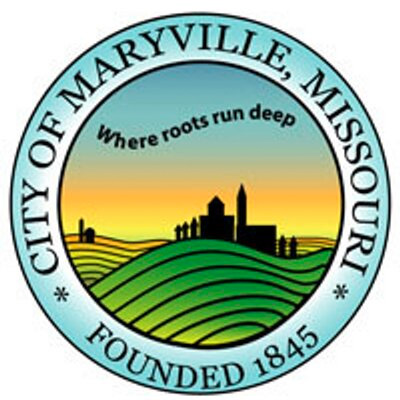 Leaders from the city of Maryville met with the Nodaway County Commission on November 26 to further discuss and prepare for the consolidation of the 911 emergency dispatch services.
Leaders from the city of Maryville met with the Nodaway County Commission on November 26 to further discuss and prepare for the consolidation of the 911 emergency dispatch services.
The two entities have met numerous times this fall to discuss a plan for the combination of the city dispatch with the county. The plan would also involve emergency entities such as ambulances, firefighters, rescue squads and Northwest Missouri State University. Presently, emergency calls go by varied routes before a dispatcher in the Nodaway County Sheriff’s Department or Maryville Public Safety contacts the appropriate agency.
The commissioners presented the city leaders with a draft of a memorandum of understanding (MOU), including their attorney’s suggestions. This was to counter the MOU that Maryville City Manager Greg McDanel had presented to the commission at an earlier meeting. The commission’s MOU established a 911 services board that would govern operations including personnel, procedures and equipment purchases for the consolidated 911 emergency dispatch services. Funding mechanisms would be the present tax, additional monies from the general revenue of both the city and county and a possible sales tax that would be placed on the April ballot for voter approval.
Maryville leadership saw several challenges in the creation of a 911 services board, noting the timing of establishing the board would push it out 12 months which would delay the financial aspect from the tax issue ballot. They also noted the age of current equipment and then the issue of forming more government. They suggested any financial shortfall would be figured by population for the city and county, as any device fee may not pay for the operation of the center completely.
Commissioners noted they had communicated with Henry County officials, a county which is approximately same size as Nodaway County and which has had a consolidated emergency dispatch center for some time. They have a 5¢ sales tax, which required a governing board. The commission also noted that handing over the governance to a board would allow their actions to be approved by the commission and council.
After much discussion between the leaders, with issues of employees salaries and benefits, equipment ownership and insurance, signage replacement when needed and other possible glitches, it was decided to pursue the city of Maryville as the primary fiscal agent. Both entities decided to turn over the details of the proposed MOU to their respective attorneys with the length of the proposed agreement to be three years from the beginning of the operation.
It was decided to meet again in the near future to finalize the agreement, the final product costs and bids. The city proposes to pay 50 percent of the equipment cost, which must be ordered by year’s end.




Facebook Comments